Linqu canal
Linqu canal
Lingqu, formerly known as the Qin Digging Canal, Zero Canal, Douhe Canal, Xing'an Canal and Xianggui Canal, is a great project created by the working people of ancient China. Located in Xing'an County of Guangxi Zhuang Autonomous Region, it was drilled into navigation in 214 B.C. Lingqu is one of the oldest canals in the world and has the reputation of "Pearl of Ancient World Water Conservancy Architecture". It flows from east to west, connecting the Ocean River in the east of Xing'an County (headwaters of Xiangjiang River, flowing from south to north) and the Da Rong River in the west of Xing'an County (headwaters of Lijiang River, flowing from north to south).
On August 13, 2018, Lingqu and other four projects were included in the World Irrigation Heritage List of 2018 (the fifth batch).
historical significance
The Lingqu's digging has connected the Xiangjiang River and Lijiang River, opened up the water passage between the north and the south, and provided an important guarantee for the Qin Dynasty to unify Lingnan. A large number of grain and grass were transported to Lingnan by water, and sufficient supplies were provided. In 214 B.C., the year Lingqu was opened to navigation, Qin soldiers conquered Lingnan, and then established Guilin, Xiangjun and Nanhai counties to formally incorporate Lingnan into the territory of the Qin Dynasty.
Lingqu connects the Yangtze River and the Pearl River, forming a water transport network throughout East China and South China. Since the Qin Dynasty, it has played a positive role in consolidating national unity, strengthening political, economic and cultural exchanges between the North and the South, and closing the contacts of people of all ethnic groups. Although Lingqu has been renovated for generations, it still plays an important role.
World Heritage Site
On August 13, 2018, the 69th International Executive Council of the International Irrigation and Drainage Commission, held in Saskatoon, Canada, announced the list of World Irrigation Heritage Sites in 2018 (the fifth batch). Among them, Lingqu and other four projects in China have all been declared successful.
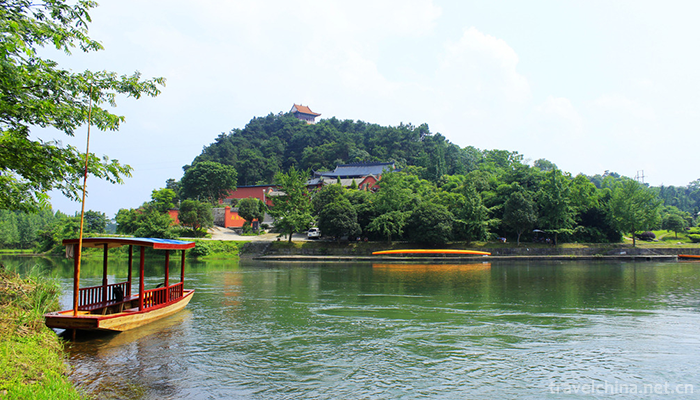
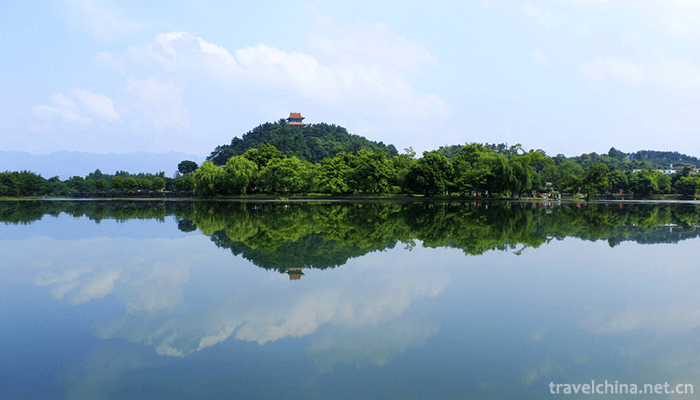
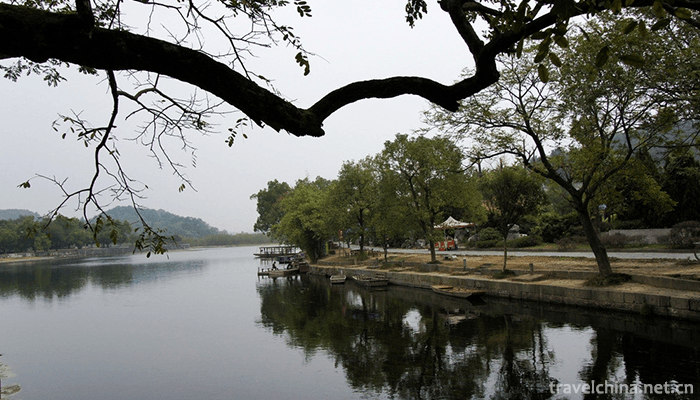
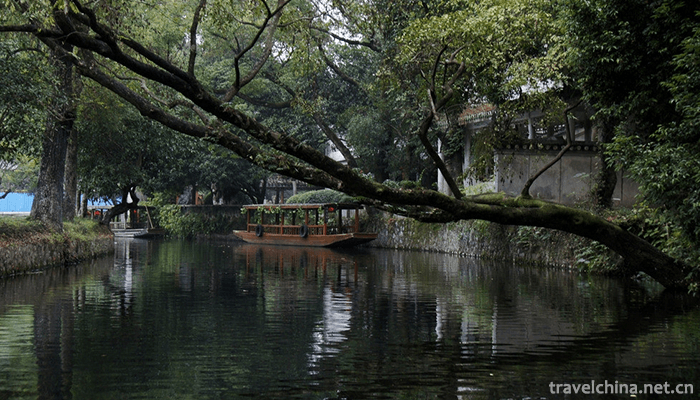
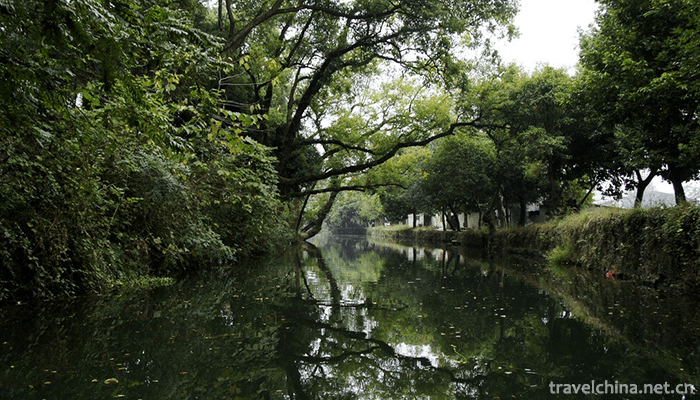
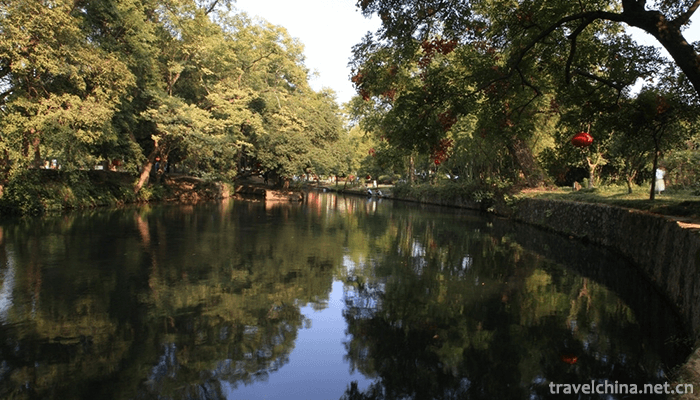


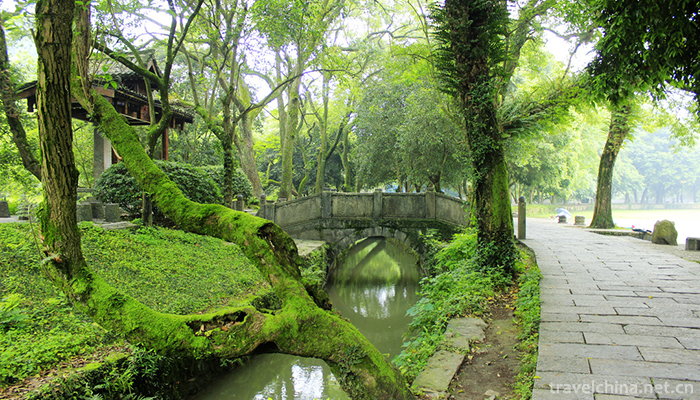
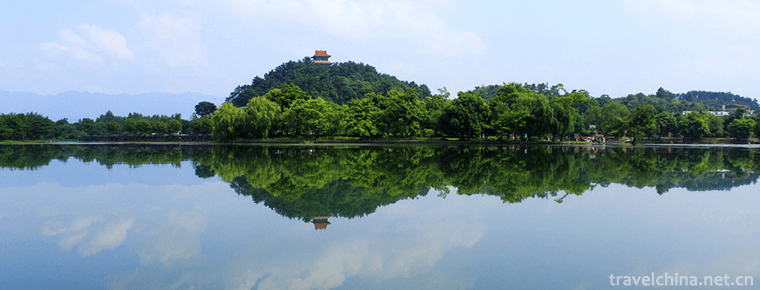
-
1.Pork ribs Noodles
Pork ribs Noodles are a traditional pasta, especially in Cantonese cuisine
Time 2018-10-12 -
2.Qilihai National Wetland Park
Qilihai National Wetland Park is located in the northeast of Tianjin, located in Ninghe District of Tianjin, 30 kilometers away from Tianjin urban area, 100 kilometers away from Beijing and 40 kilomet
Time 2018-12-17 -
3.Shanghai Ocean Aquarium
Shanghai marine aquarium is located at 1388 Lujiazui Ring Road, Pudong New Area, Shanghai, China, next to the Oriental Pearl Tower. Singaporean Xingya Group and Chinese Poly Group have jointly
Time 2018-12-19 -
4.The Gu Guan Great Wall
Guguan Great Wall is located in Xinguancun, Pingding County, Shanxi Province, on the western side of Taihang. It starts at Niangziguan Jiayugou in the north and reaches Baihui Village in the south.
Time 2019-01-12 -
5.Guyuan Northern Dynasty Sui and Tang Dynasties Cemetery
The tombs of the Northern Dynasty and Sui and Tang Dynasties in Guyuan are located in Xiaomazhuang, Yangfang, Shengou, Dabao, Wanglioba, five natural villages in the West and south suburbs of Yuanzhou
Time 2019-01-12 -
6.Chinese Sun Valley
Located in the development zone of Dezhou, Sun Valley of China is the largest base of research, development, testing, production, education and tourism of renewable energy in the world.
Time 2019-01-18 -
7.Eight Immortals
Raw materials: japonica rice, yellow millet, soybean, red adzuki bean, mung bean (fried with five flavors) 75 grams each. Fennel (washed) 150 grams, dried ginger, stir-fried white salt 30 grams each.
Time 2019-03-27 -
8.Chaozhou Music
Chaozhou music is the general name of all kinds of traditional folk instrumental music spread in Chaoshan area of Guangdong Province, referred to as Chaozhou music
Time 2019-04-16 -
9.The Story of Guangchan Marquis
The story of Guangchan Marquis refers to a local folklore widely circulated in Yangcheng County, Jincheng City. Guangchan Marquis refers to an ordinary folk veterinarian in the Northern Song Dynasty
Time 2019-05-01 -
10.Dragon file long dang
"Dragon File", also known as "Bench Dragon", is a craft art with strong local folk traditional characteristics in Yueqing, Zhejiang Province, China. Dragon stalls are developed fro
Time 2019-05-14 -
11.Tujia Wedding Song
The Tujia people living in the border areas of Hunan, Hubei, Chongqing and Guizhou are an ancient civilized nation with a long history and traditional customs, and retain strong national characteristi
Time 2019-06-23 -
12.Shixiang Lake
Shixiang lake is named after Shixiang temple, an ancient temple in the lake area. It is said that it was the place where Yan Yan, a general of the Three Kingdoms, rode an elephant to heaven.
Time 2020-10-16